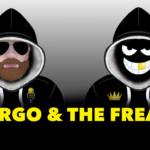Rugby League was born in 1895 in Huddersfield in the UK. The game had gone through a turbulent time in the first few years but after 99 years the game was flourishing.
But as the game entered its centenary a new revolution was on the horizon as the fight for control of the game.
In this section of The Official Site Of The King Of The Internet: League Freak we look at the events leading up to, during and after The Super League War.
The events during the Super League War have been clouded by War Time Propaganda from both sides. This section is an effort to cut through that fog of war and get to the heart of what really happened during the years the game ate away at itself.
These events are based on League Freaks personal accounts of the time and while League Freak has made every effort to impartial, this account of the events during The Super League War should be taken as just one opinion of what happened.
The Birth Of Australian Pay Television
In the Early 90’s Australian pay Television was in its infancy. The industry in Australia had just kicked off and while there were a number of carriers, there were two heavy weights.
New Ltd and Optus.
Both companies went head to head on many fronts as they fought for every advantage they could get. With the Australian population number under 20,000,000 the sprint to get into as many homes as quickly as possible was vital to get the upper hand over their competitors.
As always, content was king. Both companies scrambled for Australian content and the big prize as always was sport.
One sport in particular stood out from the rest. It was the dominant sport in two of the three biggest television markets in Australia, it was expanding to a nations competition and it was clearly a sport on the rise.
Rugby League.
The ARL And Its Long Term Plans
The ARL’s plan was simple. Expand the competition and allow market forces to take over.
The idea was that by expanding to Perth, Auckland, North Queensland and South Queensland the ARL would force struggling Sydney clubs to face commercial reality forcing them to bite the bullet. The ARL wanted struggling clubs to either merge, drop out of the top grade, or die all together.
The game was going through an unprecedented period of growth. Crowds were booming, League was getting nations attention, sponsors couldn’t get enough of the game and the product on the field was….Simply The Best.
It was at this time that sport World Wide was starting to reap the benefits of Television Rights. Mainly, Pay Television Right.
The ARL knew it was in a position of strength. It had a booming competition and it had two competitors that could not afford to lose any advantage to one another. Everything a sport could want.
Optus Wins The Pay TV Rights
When the ARL signed a record agreement with Optus Vision for them to be the exclusive Pay TV Rights Holder to ARL games including State Of Origin and Internationals, it was a massive blow to New Ltd.
Rugby League had become the jewel in the crowd for both News Ltd and Optus and losing the rights was devastating to News.
News knew it could not just hand such a massive advantage to its competitor. Something had to be done….
Discontent Within Rugby League
While the ARL felt it was moving the game in the right direct, many clubs and officials within the game were not so sure.
These feeling ranged from slight doubts, to out right discontent with the way the game was being run. These feelings ranged over a wide spectrum of issues. Some had concerns over the business practices the ARL was undertaking, others feared for the pure fabric of the game. Some were worried about their political standings while others simply had personal issues with ARL administrators. Clubs saw their old power bases being eroded away. Others felt that the ARL was showing favoritism to certain clubs.
Lighting The Fire….
News Ltd saw these rumblings within the Rugby league ranks. It knew that given enough motivation, some ARL clubs could be given the idea that “Why follow the ARL when you could join a brand new competition without all of the old problems”.
With an army of solicitors, blank check books, people who could sell a concept and with a wealth of international marketing savvy behind it, News Ltd starting selling the concept of a “Super League” to clubs, players and administrators.
The Goal
News Ltd’s goal was clear. They needed a Rugby League competition that would be exclusive to their Foxtel Pay TV arm. However, thats not what they were selling. They knew that League clubs didn’t care about Foxtel or the pay TV battle. To win the war News Ltd was going to have to sell the idea to clubs, administrators and players that the news Super League would be a spring board to bigger and better things.
News Ltd starting “investing” money into the Pacific Islands. Over night the ARL was confronted by the fact that it has become internationally isolated from the rest of the game as England, New Zealand, France and the Pacific Islands signed up with Super League.
Super League official’s sold the concept of globalizing Rugby League. Talk of world wide club competitions, markets and sponsorship opportunities in Europe, Asia and the United States, News Ltd basically sold the idea to people within the game that “If you follow us, you will become successful beyond your wildest dreams”.
It was a message that was hard to ignore. As the English Premier League was becoming a world wide phenomenon and the NBA a global power house….it was easy for a naive sport to get wrapped up in the idea that anything was possible.
The House Of Cards
One by one they started to fall. It wasn’t as clear cut as history would suggest either.
A club would sign up with Super League, but its players would be left to make their own decisions. Some players signed individual contracts with the ARL or Super League while the rest of their team mates would move en mass to one side or the other.
People flip flopped. Some teams signed with the ARL but gave a nudge and a wink to Super League saying “If the ARL falls over, we’ll sign up with you straight away”. Loyalty became a dirty word and despite the propaganda from both sides, there was no moral high ground to be found at any level of the game.
Entire clubs, individual administrators, coaches, players….everyone was out to get the best deal they could. Yet through all of this the biggest group involved in Rugby league stood back in horror, watching from a distance and being able to do nothing about it.
The Court Battle
The ARL took on New Ltd in court and at one point, Super League looked dead and buried But in a stunning turn around the break away competition was given the green light to move ahead after a complete reversal of a previous decision.
This decision was a real kick in the guts for the ARL and basically it was the green light, Super League was now officially going to happen.
The Split
In 1997 it was the worst case scenario for the game of Rugby League. The game would be split into two separate competitions, the Australian Rugby Leagues Optus Cup and Super League Telstra Cup.
The ARL has 12 clubs. Super League had 10 clubs play Europe, the United States, New Zealand and the Pacific Islands under its grasp.
The ARL Competition consisted of:
Sydney City Roosters
St George Dragons
Illawarra Steelers
Gold Coast Chargers
Balmain Tigers
Western Suburbs Magpies
North Sydney Bears
Manly Sea Eagles
South Queensland Chargers
Parramatta Eels
Newcastle Knights
South Sydney Rabbitohs
Super League consisted of
Auckland Warriors
Brisbane Broncos
Cronulla Sharks
Adelaide Rams (An SL Expansion Club)
Perth Reds
Canterbury Bulldogs
Penrith Panthers
Noth Queensland Cowboys
Hunter Mariners (Expansion club based in Newcastle)
Canberra Raiders
The ARL competition ran along the normal format of 22 rounds of regular season games and a four week playoffs series that ended in the Grand Final.
The Super League competition was a shorter 15 week competition that ended in a four week finals series that ended in a Grand Final. It would then have an expanded World Club Championship competition between Australians and English Super League clubs.
As 1997 kicked off, you were in one court or the other. If you followed an ARL club and you wanted to see your teams play, you got Optus. If you followed a Super League club, you got Foxtel.
After all….thats what this whole mess was all about.
Turning Off
The level of greed was unfathomable for a group of fans brought up on old school values that were still part of Rugby League culture.
Where fans would identify with a player because through the week he worked as a brick layer and on the weekend he was an national sporting hero, now all of a sudden players were earning more then the Prime Minister.
People couldn’t identify with their hero’s any more and having seen the sleazy games being played day in day out between Australia’s biggest media mogals….people simply tuned out.
Within the space of two years the game went from record crowds to having to give tickets away to achieve even a reasonable crowd. Pull up to a McDonald’s and you could get as many tickets as you wanted with a Happy Meal. Get to school and go to the PE Teacher and you and your friends could get free season passes just for knocking on the door.
Dark Days For The Game
As the 1997 season rolled on the World Club Challenge became a complete non event and a farce. Billed as one of Super Leagues selling points, the gulf that emerged between Australian and English clubs was massive.
Half was through the competition the rules were changes as the prospect of seeing an English side with a losing record make the final was just two embarrassing for even Super League administrators to face.
While the hype machine for both sides kept rolling the gimmicks were there for everyone to see. Concerts at halfback, music played over the stadiums speakers, T-shirts being shot into stands….it was something Australian fans grew bored of very quickly.
As Super League Grand Final rolled around its was not so much a matter of who would be there as it was who would end up playing the Broncos. The Super League Grand Final was played at ANZ Stadium in front of a massive crowd.
In the hearts and minds of League supporters however….it wasn’t THE Grand Final. That was still to follow
League’s Last Stand
The ARL final series had provided many magical moments and the meeting of the Newcastle Knights and Manly Sea Eagles was a clash that everyone could get excited about.
These teams despised one another.
One one side you had the Silver tails. They were cashed up. Their coach was the Australian coach. Their lineup was packed full of representative players. They were a brilliant side, an arrogant side. They thought….no…they knew they were better then everyone else.
On the other side you had the battlers from Newcastle. A tough, working class city that had been hit by an Earthquake and the closure of major industry in the previous years. A side filled with good footy players, tough players, fan favorites and larikins.
It was the good guys vs the bad guys, but more importantly it was Rugby league last chance to remind people why they loved the game so much and why Rugby League was worth fighting to save.
A Moment Only Rugby League Could Conjure Up
When Darren Albert scored by grounding the ball with one hand in the Manly ingoal….he didn’t just win the Knights their first Premiership, but he put the full stop on the Super League war.
This one game showed what was so great about Rugby league. Its showed what fans had been missing. Its showed that all of the talk about international competitions, games in China and India and world wide fame was not only bulldust, but it wasn’t important.
Here you had a bunch of guys from Newcastle that people believed in…..and they had won against the odds.
Winning against the odds….its what Rugby League has been doing since 1895.
The Peace Agreement
It was clear to both sides that the Super League war had to end. Both sides had lost hundreds of millions of dollars. It just could no be sustained.
The ARL and News Ltd sat down and thrashed out a peace agreement the key points being:
A newly merged competition would be a 50% partnership between News Ltd and the ARL.
The new Australian National Rugby League competition would be cut down to 14 clubs by the 2001 season.
News Ltd would set up and fund a Rugby League team in Melbourne.
Both Pay TV carriers would share coverage of the game until the rights ran out in 2002.
The deal wasn’t pretty, and it would see 9 clubs being culled off within a few short years….but it was a deal that had to happen.
The Winner?
The biggest winners out of Super League were undoubtedly player managers and players themselves. Player managers became multi millionaires over night. The commissions alone was staggering.
Players went from being part timers in most cases to being full time professional. During Super League, many of the games elite earned money that event today would beyond belief.
As for the bigger war….the ARL or New Ltd….its tough to say.
At the end of the day News Ltd got more then they wanted. Not only did they end up gaining the exclusive rights to the National Rugby League competition, but they now own 50% of the competition. The downside for News Ltd was the cost of the war and the fact that now, Rugby league and News Ltd are partners for a long, long time.
The ARL meanwhile kept some control of the National Club Competition while retaining complete control over the lucrative State Of Origin series and they become the major player in what was left of the international scene. Still it must be said that the ARL is a shadow of its former self and its contribution to the game over the last ten years had been questionable at best.
The Cost
The Super League war effectively took 8 years to run it’s course. Its estimated that over a billion dollars was spent during the war.
Five teams were closed down for good, four teams were forced into mergers, one team was shut down and reborn in the space of six months, another was kicked out of the competition and then re-instated a year later.
During the Super League war the Australian Football League (Australian Rules) was given a free pass to not only expand into new areas, but to make inroads into NSW and Queensland.
The Super League war also forcer rugby union to become professional. This gave Rugby League a major, hostile rival with a lot of backing, political clout and a 100 year old score to settle.
International Rugby League went from being a diverse, vibrant and growing competition to being completely lifeless within the space of a few short years. The game basically died in the Pacific Islands and Australia had only New Zealand and Great Britain who could even begin to consider giving them a decent contest.
Junior playing numbers stagnated for many years, sponsors stayed away, ratings fell, everything about the game was de-valued.
Put simply, Rugby League had to build it self up again from basically the ground up.
The Aftermath – Ten Years On
Its been 10 years since Super League become a dirty word in Australian sporting history. So what has changed?
These days the National Rugby League is a business that is booming. Record attendances and TV ratings are proof that The War is well and truly over.
The game is once again looking to expand, or should that be, take back old ground. The Gold Coast Titans admission into the NRL in 2007 will provide the NRL with blanket coverage of the Australian Eastern Seaboard and give the competition a firm platform to look towards both New Zealand and Southern and Western Australia for future expansion possibilities.
On the International scene, New Zealand is starting to show promise as are France. The game in Great Britain is in rude health as the RFL starts to make tough decisions to expand the game and raise the level of professionalism in the UK.
The game is starting to once again take tentative step to re-establishing itself in other nations as well. The game is once again being played in some Pacific island nations, PNG has a brand new national competition, the game is alive and well in the United States while countries like the Netherlands, Germany, Russia, Argentina and Lebanon continue to struggle alone and try to build something of themselves in the League landscape.
Conclusion
Did we need Super League? Did it bring in positive changes? Its hard to say.
Without doubt Super League helped the game come financially responsible and took the game into a new area of professionalism that could only be possible with such an over night revolution.
Super League helped cut the fat out of the game, it helped cut away the wastage.
I believe that history will look back on Super League has something that in the long run helped the game of Rugby League, but also helped the rivals of Rugby League grow.
Super League saw the game forget about its history. Rugby League has a long, rich history that other sports can only dream of. For a number of years, that history was completely forgotten and even today I still believe some people involved in the game couldn’t care less about anything that happened earlier then last week.
The biggest conclusion that can be drawn however is on the game of Rugby League itself. A game forged by the working class that wasn’t supposed to survive. A game thats been hounded by its opposition for over a century and a game that tried to tear itself apart,…..the fact that Rugby league is not just surviving, but thriving is a miracle.
Unlike any other sport in the world, Rugby League fans feel and ownership of their game.
Maybe it stems from the very beginnings of the game when men decided enough was enough and if the powers that be were not going to listen to them, they’d start their own bloody competition. Maybe it stems from the fact that League is a game that doesn’t judge or discriminate. Maybe its the fact that throughout its history its had to fight every step of the way against powerful opponents or maybe its just that fact that in Rugby League, no matter who you are, if you put in the effort you can reach heights you thought impossible.
What ever the case, ten years on and the game is once again going strong. What the future holds for our great game is anyone’s guess, but one thing will always remain true.
Rugby League will always remain the Greatest Game of All.






One thought on “The Super League War – The Battle For Control Of The Game”